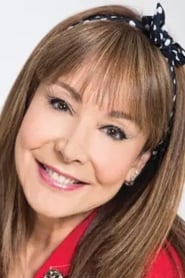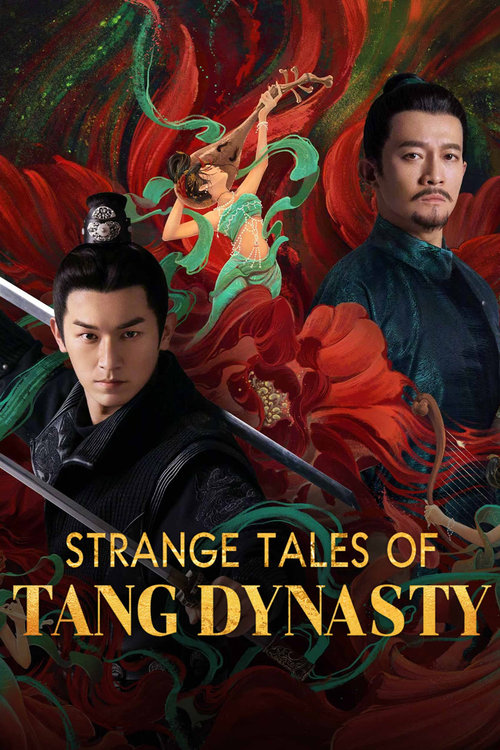
Ask Your Own Question
What is the plot?
In Episode 48 of Rosh Gadol, the episode opens with a tense atmosphere in the main character's home. The protagonist, Yossi, is seen pacing back and forth, visibly anxious about the upcoming meeting with his business partners. He is worried about the financial state of his company, which has been struggling due to recent market changes. His internal conflict is palpable as he grapples with the fear of failure and the pressure to provide for his family.
As the scene shifts, we see Yossi's wife, Miriam, preparing breakfast for their children. She notices Yossi's agitation and tries to comfort him, but he brushes off her concerns, insisting that everything will be fine. This moment highlights the strain in their relationship, as Miriam feels increasingly isolated in her worries about their future. The children, unaware of the tension, play in the background, adding a layer of innocence to the otherwise heavy atmosphere.
The narrative then transitions to the meeting with Yossi's business partners. The setting is a sleek conference room filled with tension. Yossi arrives late, flustered, and immediately senses the discontent among his partners. They express their frustrations about the company's declining profits and demand a solid plan for recovery. Yossi, feeling cornered, proposes a risky investment strategy that he believes could turn things around. His partners are skeptical but agree to give him one last chance, setting a deadline for results.
Following the meeting, Yossi meets with his old friend, Avi, who has been successful in a different business venture. Avi offers Yossi advice and encouragement, urging him to take calculated risks rather than gamble everything. Yossi is torn between his loyalty to his partners and the desire to follow Avi's more cautious approach. This conversation deepens Yossi's internal struggle as he weighs the potential consequences of his decisions.
Later, Yossi returns home, where the atmosphere is still tense. Miriam confronts him about the meeting, expressing her fears about their financial situation. Yossi, feeling the weight of his responsibilities, snaps at her, leading to a heated argument. This confrontation reveals the cracks in their marriage, as both characters feel misunderstood and overwhelmed by their circumstances. Miriam storms out of the room, leaving Yossi alone with his thoughts.
The next day, Yossi decides to take a bold step. He meets with a potential investor, hoping to secure the funds needed for his risky plan. The investor, a shrewd businessman, is intrigued but demands a significant stake in the company. Yossi hesitates, knowing that this could mean losing control over his own business. After a tense negotiation, he reluctantly agrees to the terms, driven by desperation to save his company.
As the episode progresses, Yossi's decision begins to take a toll on his personal life. He becomes increasingly consumed by work, neglecting his family. Miriam tries to reach out, but Yossi is distant, focused solely on the business. This leads to further strain in their relationship, culminating in a poignant scene where Miriam breaks down, feeling abandoned and alone.
In the climax of the episode, Yossi receives news that the investment has fallen through due to unforeseen circumstances. He is devastated, realizing that he has put everything on the line for a gamble that did not pay off. This moment of despair forces him to confront the reality of his situation and the impact of his choices on his family.
The episode concludes with Yossi returning home, where he finds Miriam waiting for him. They share a moment of vulnerability, acknowledging the challenges they face together. Yossi expresses his regret for prioritizing work over family, and they begin to discuss how to move forward. This scene marks a turning point in their relationship, as they commit to facing their struggles as a united front, setting the stage for future developments in their journey.
What is the ending?
In the ending of "Rosh Gadol," Season 4, Episode 48, the main characters face the culmination of their conflicts. The episode concludes with a tense confrontation that leads to significant revelations and resolutions. The fates of the characters are sealed as they confront their past choices and the consequences of their actions.
As the episode unfolds, we see the characters grappling with their emotions and the weight of their decisions. The climax builds as they come together in a pivotal location, where long-standing tensions reach a breaking point. The episode ends with a sense of closure for some characters, while others are left with unresolved issues, hinting at the complexities of their relationships and the ongoing struggles they face.
The episode opens with a dimly lit room, where the atmosphere is thick with tension. The camera pans across the faces of the main characters, each reflecting a mix of anxiety and determination. The stakes are high as they prepare for a confrontation that has been brewing throughout the season.
Scene 1: The Gathering The characters gather in a familiar location, a place that holds significant memories for them. The air is heavy with unspoken words as they exchange glances, each one aware that this meeting could change everything. The leader of the group, visibly shaken, takes a deep breath and addresses the others, urging them to confront their past mistakes. The emotional weight of the moment is palpable, as each character wrestles with their internal struggles.
Scene 2: The Confrontation As the discussion escalates, voices rise, and accusations fly. The camera captures the raw emotions on their faces--anger, regret, and fear. One character, feeling cornered, reveals a shocking secret that shifts the dynamics of the group. Gasps fill the room as the revelation sinks in, leading to a moment of silence where everyone processes the implications of this new information.
Scene 3: The Turning Point In the aftermath of the revelation, the characters begin to reflect on their choices. One character, burdened by guilt, steps forward to take responsibility for their actions. This moment of vulnerability opens the door for others to share their own regrets, creating a cathartic atmosphere. Tears are shed, and apologies are exchanged, showcasing the depth of their relationships and the impact of their decisions.
Scene 4: The Resolution As the confrontation reaches its peak, the characters begin to find common ground. They realize that despite their differences, they share a bond that cannot be broken. The leader proposes a plan to move forward, emphasizing the importance of unity and forgiveness. The group, though still fraught with tension, begins to see a glimmer of hope for their future.
Scene 5: The Farewell The episode concludes with a poignant farewell scene. Each character reflects on their journey, acknowledging the lessons learned and the growth they have experienced. Some characters choose to part ways, seeking new paths, while others decide to stay together, committed to rebuilding their relationships. The camera lingers on their faces, capturing a mix of sadness and hope as they embrace the uncertainty of what lies ahead.
In the final moments, the screen fades to black, leaving the audience with a sense of closure for some characters while hinting at the ongoing struggles for others. The episode encapsulates the themes of redemption, forgiveness, and the complexities of human relationships, reminding viewers that while the past cannot be changed, the future is still unwritten.
Is there a post-credit scene?
In "Episode 48" of "Rosh Gadol," there is indeed a post-credit scene that adds an intriguing layer to the episode's conclusion.
As the credits roll, the screen fades back in to a dimly lit room where a solitary figure sits at a desk cluttered with papers and photographs. The camera slowly zooms in, revealing the character of Eli, who has been a pivotal figure throughout the season. His expression is one of deep contemplation, a mix of determination and uncertainty etched across his face.
Eli is reviewing a series of documents that hint at a larger conspiracy that has been brewing beneath the surface of the main storyline. The photographs depict various characters from the series, some familiar and others new, all connected by a web of intrigue. As he flips through the papers, his brow furrows, and a sense of urgency builds in the atmosphere.
Suddenly, the door creaks open, and a shadowy figure enters the room. Eli looks up, startled, and the tension in the air thickens. The figure steps into the light, revealing themselves to be a character who had been presumed absent from the narrative. Their presence signifies a potential alliance or a new threat, leaving viewers with a cliffhanger that raises questions about their intentions.
The scene ends with Eli's resolute expression, hinting at the challenges that lie ahead, and the screen fades to black, leaving the audience buzzing with anticipation for the next episode. This post-credit moment effectively sets the stage for future developments, reinforcing the themes of loyalty, betrayal, and the complexity of relationships that have been central to the series.
What significant event occurs between the characters Yael and Amir in this episode?
In Episode 48, the tension between Yael and Amir reaches a boiling point as they confront their unresolved feelings for each other. A pivotal scene takes place in a dimly lit café where Yael, visibly anxious, finally admits her fears about their relationship. Amir, torn between his loyalty to his family and his love for Yael, struggles to respond, leading to an emotionally charged moment that leaves both characters at a crossroads.
How does the character of Eli react to the news about his father's health?
Eli's reaction to his father's health news is one of shock and despair. The scene unfolds in the family living room, where Eli receives the call. His face pales, and he grips the phone tightly, his knuckles turning white. As he processes the information, tears well up in his eyes, showcasing his deep love and concern for his father. This moment reveals Eli's vulnerability and the weight of familial responsibility he feels.
What role does the character of Tali play in the conflict between the main characters?
Tali serves as a catalyst for conflict in Episode 48. She manipulates situations to create rifts between Yael and Amir, driven by her jealousy and desire for Amir's attention. In a tense confrontation, Tali confronts Yael, accusing her of trying to steal Amir away. This scene is charged with emotion, as Yael stands her ground, revealing Tali's insecurities and the lengths she will go to maintain her hold on Amir.
What is the significance of the flashback scene involving the childhood of the main characters?
The flashback scene in Episode 48 is crucial as it provides context for the current tensions among the characters. Set in a sunlit park, the young versions of Yael, Amir, and Eli are seen playing together, laughing and carefree. This nostalgic moment contrasts sharply with their present struggles, highlighting how their childhood bonds have been tested by adult conflicts. The flashback evokes a sense of longing and loss, deepening the audience's understanding of their relationships.
How does the episode explore the theme of betrayal through the character of Noa?
Noa's actions in Episode 48 epitomize betrayal as she reveals a secret that could jeopardize the trust between her friends. In a dramatic scene, she confides in a new acquaintance about Yael's vulnerabilities, believing she is protecting her own interests. This moment is fraught with tension, as Noa's internal conflict is palpable; she grapples with guilt and the fear of losing her friends. Her motivations stem from a desire for acceptance, but the consequences of her betrayal loom large, threatening to unravel the group's dynamics.
Is this family friendly?
"Rosh Gadol" is known for its complex narratives and emotional depth, which can sometimes include themes that may not be suitable for younger audiences or sensitive viewers. In Season 4, Episode 48, there are several aspects that could be considered objectionable or upsetting:
-
Emotional Turmoil: Characters experience intense emotional struggles, including grief, betrayal, and conflict, which may be distressing for younger viewers.
-
Family Conflict: The episode features significant family disputes that can be tense and uncomfortable, showcasing the breakdown of relationships.
-
Moral Dilemmas: Characters face difficult choices that challenge their ethics and values, which may provoke anxiety or confusion in younger audiences.
-
Violence or Threats: There may be scenes that involve threats or confrontations that could be alarming, depending on the context and portrayal.
-
Themes of Loss: The episode may touch on themes of loss and separation, which can be particularly upsetting for children or those sensitive to such topics.
These elements contribute to the show's dramatic tension but may not be suitable for all viewers, especially children.


















